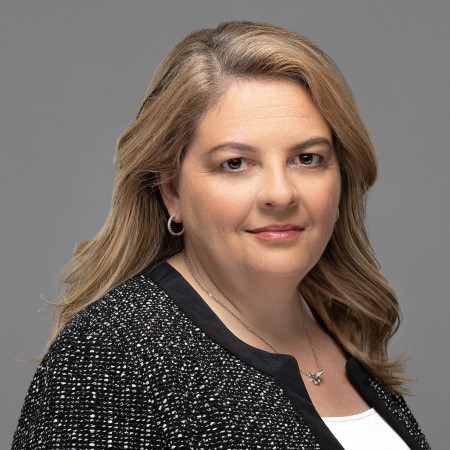Continuity Or Change? Roche’s New CEO And Pharma Leader Take On Big Strategy Question
Severin Schwan Replaced After 15 Years
Executive Summary
Roche will suffer a hangover from its COVID-19 successes this year as revenues stagnate and its future strategy is yet to be laid out by incoming CEO Thomas Schinecker.
Roche’s incoming CEO and new pharma division leader will face shrinking revenues in 2023 as the company’s COVID-19 dividend fades. However, while investors may be keen for major changes to boost long-term growth, it is as yet unclear what strategic moves are planned.
The Basel, Switzerland-based company has been one of the sector’s top performers for a decade but saw its growth dip to just 1% in 2022 to CHF6.32bn ($69.5bn) and this year, revenues are expected to decline by 1%-3%.
Growth stalled in 2022 largely due to a $1bn-plus drop in Roche’s COVID-19 therapies and diagnostics as the pandemic abated, and the firm faces a further $5bn pandemic revenue shortfall this year.
Roche’s outgoing CEO Severin Schwan pointed out that when these revenues are taken out of the picture, underlying growth from its pharma division was a more healthy 4% and 7% from its diagnostics division.
Meanwhile, shareholders have been kept happy with core earnings per share up by 5% (+2% in Swiss francs) to a record CHF20.30, boosted in particular by Roche’s repurchase from cross-town rival Novartis AG of 53 million shares last year.
Nevertheless, investors have expressed frustration at Roche’s strategy, which in 2022 suffered three big setbacks: a progression-free survival miss from TIGIT-targeted cancer immunotherapy tirogolumab; two licensed indication revoked for its immunotherapy Tecentriq (atezolizumab); and the Phase III failure of its Alzheimer’s candidate, gantenerumab. (Also see "Questions About Gantenerumab Failure Remain, But Roche Is Not Yet Finished With Alzheimer’s" - Scrip, 28 Nov, 2022.)
Against this backdrop came the sudden exit of pharma division leader Bill Anderson in October, and the company has just announced Teresa Graham, the current global product strategy leader, as his successor.
She will report to Thomas Schinecker, former head CEO of Roche Diagnostics who will take over from Schwan next month. The Q4 investor call on 2 February served as Schwan’s farewell as CEO before he moves to the Roche chairman role. (Also see "Pharma Leader Bill Anderson Makes Rapid Exit From Roche" - Scrip, 12 Dec, 2022.)
Observers are keen to hear the new leadership’s plans. In a 19 January investor note, Citi analyst Andrew Baum predicted that Schinecker would seize the opportunity to shake up Roche’s R&D and commercial organizations. “Given a CEO’s freedom to operate is greatest as the start of their tenure, we anticipate near-term downsizing of the Roche salesforce underpinning the CFO’s recent repeated comments about ‘defending the margin’.”
Baum believes big changes are ahead to the leadership in Roche’s research divisions, which are currently split between Genentech’s biotech research and early development (dubbed gRED) in South San Francisco, US, and Roche’s Basel-based pharma research and early development (pRED).
Since Anderson’s departure, Schinecker has being acting as interim head of pharma and said on the call that he had been focusing on better understanding drugs R&D. One change already instigated by Schinecker and announced on 2 February was the addition of Levi Garraway, chief medical officer and head of global product development, to the executive board. This move is aimed at allowing more joined-up thinking between early development and commercialization, along similar lines to that introduced at Novartis.
Baum also expects a step-up in in-licensing and M&A activity, areas where Roche has been one of big pharma’s least energetic companies in recent years. He named autoimmune therapy, gene therapy and antibody-drug conjugates (ADCs) as the most likely targets, potentially driven on by pressures from the US Inflation Reduction Act.
“Within oncology, Roche development has often looked commercially leaden-footed compared with Merck & Co., Inc. over the last decade,” commented Baum. “We anticipate Roche to re-enter ADC development as they continue to seek to expand their portfolio of novel IO agents.”
But comments from Schinecker and Schwan on this topic during the Q4 earnings call lacked enthusiasm. Schwan said Roche remained open to opportunities but said buying into late-stage assets “was difficult to justify from a business case point of view” and he indicated that this would likely remain the case.
Schinecker agreed. “We always do our due diligence. So, whenever anything is on the market … we look at it and make decisions based on the science and on the financials. We'll continue to do that as we go forward as we have done in the past.”
2023 Milestones
The company will not be entirely on the backfoot in 2023, as it is expecting three major new product approvals: the bispecific antibody glofitamab in large B-cell lymphoma; covalimab in paroxysmal nocturnal hemoglobinuria; and SRP-9001, its gene therapy for Duchenne muscular dystrophy, to be co-marketed with Sarepta Therapeutics, Inc..
Another anticipated event is the US Food and Drug Administration’s approval of a subcutaneous formulation of Tecentriq, which would help boost its use in multiple settings.
The biggest readout of the year remains the expected overall survival (OS) data for its TIGIT inhibitor frontrunner, tiragolumab, from the SKYSCRAPER-01 study in non-small cell lung cancer. An interim OS readout is expected within the next month, but Roche’s leaders said the company currently had no data in-house. Schwan added that, barring a stopping of the trial (either for futility or overwhelming positive results), the study would continue to a full OS readout in the second half of this year.
While many analysts have downgraded expectations of tiragolumab and the wider TIGIT class, a clear positive result would provide a major upside to Roche in an otherwise difficult transitional year.


